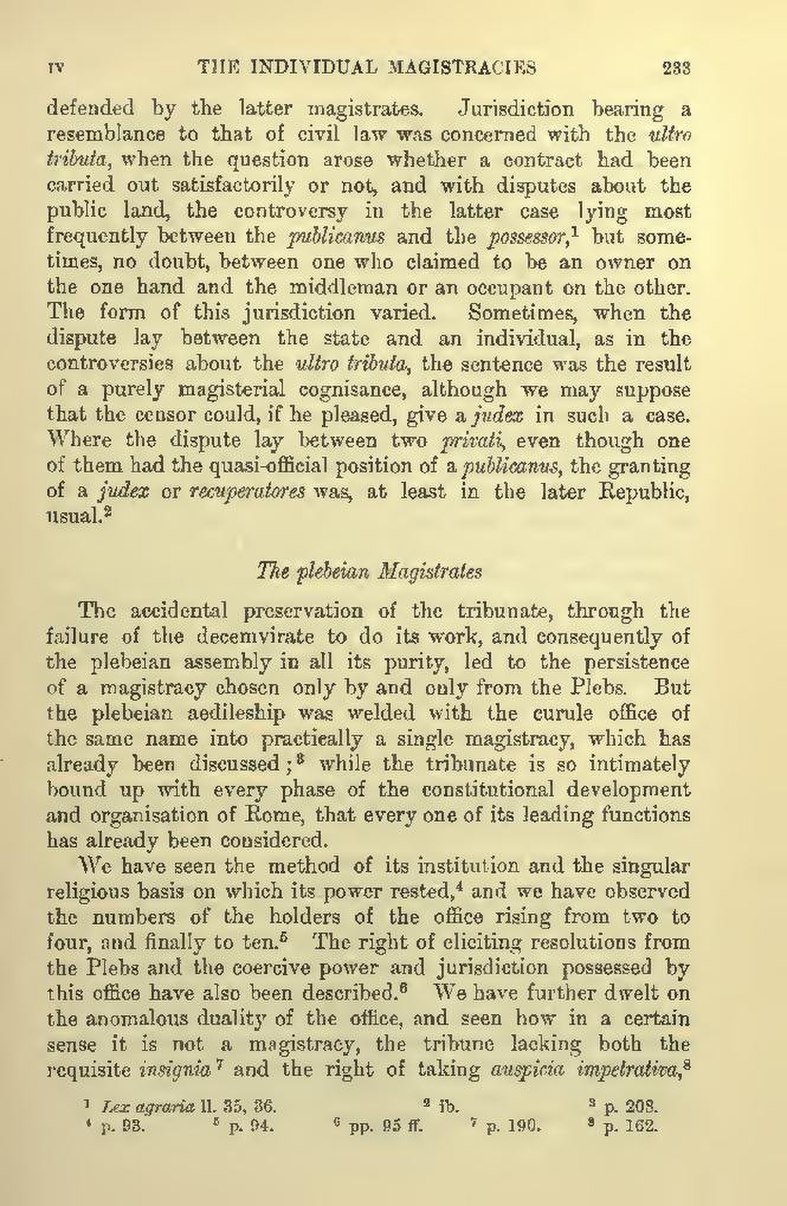defended by the latter magistrates. Jurisdiction bearing a resemblance to that of civil law was concerned with the ultro tributa, when the question arose whether a contract had been carried out satisfactorily or not, and with disputes about the public land, the controversy in the latter case lying most frequently between the publicanus and the possessor,[1] but sometimes, no doubts between one who claimed to be an owner on the one hand and the middleman or an occupant on the other. The form of this jurisdiction varied. Sometimes, when the dispute lay between the state and an individual, as in the controversies about the ultro tributa, the sentence was the result of a purely magisterial cognisance, although we may suppose that the censor could, if he pleased, give a judex in such a case. Where the dispute lay between two privati, even though one of them had the quasi-official position of a publicanus, the granting of a judex or recuperatores was, at least in the later Republic, usual.[2] The plebeian Magistrates
The accidental preservation of the tribunate, through the failure of the decemvirate to do its work, and consequently of the plebeian assembly in all its purity, led to the persistence of a magistracy chosen only by and only from the Plebs. But the plebeian aedileship was welded with the curule office of the same name into practically a single magistracy, which has already been discussed;[3] while the tribunate is so intimately bound up with every phase of the constitutional development and organisation of Rome, that every one of its leading functions has already been considered.
We have seen the method of its institution and the singular religious basis on which its power rested,[4] and we have observed the numbers of the holders of the office rising from two to four, and finally to ten.[5] The right of eliciting resolutions from the Plebs and the coercive power and jurisdiction possessed by this office have also been described.[6] We have further dwelt on the anomalous duality of the office, and seen how in a certain sense it is not a magistracy, the tribune lacking both the requisite insignia[7] and the right of taking auspicia impetrativa,[8]
